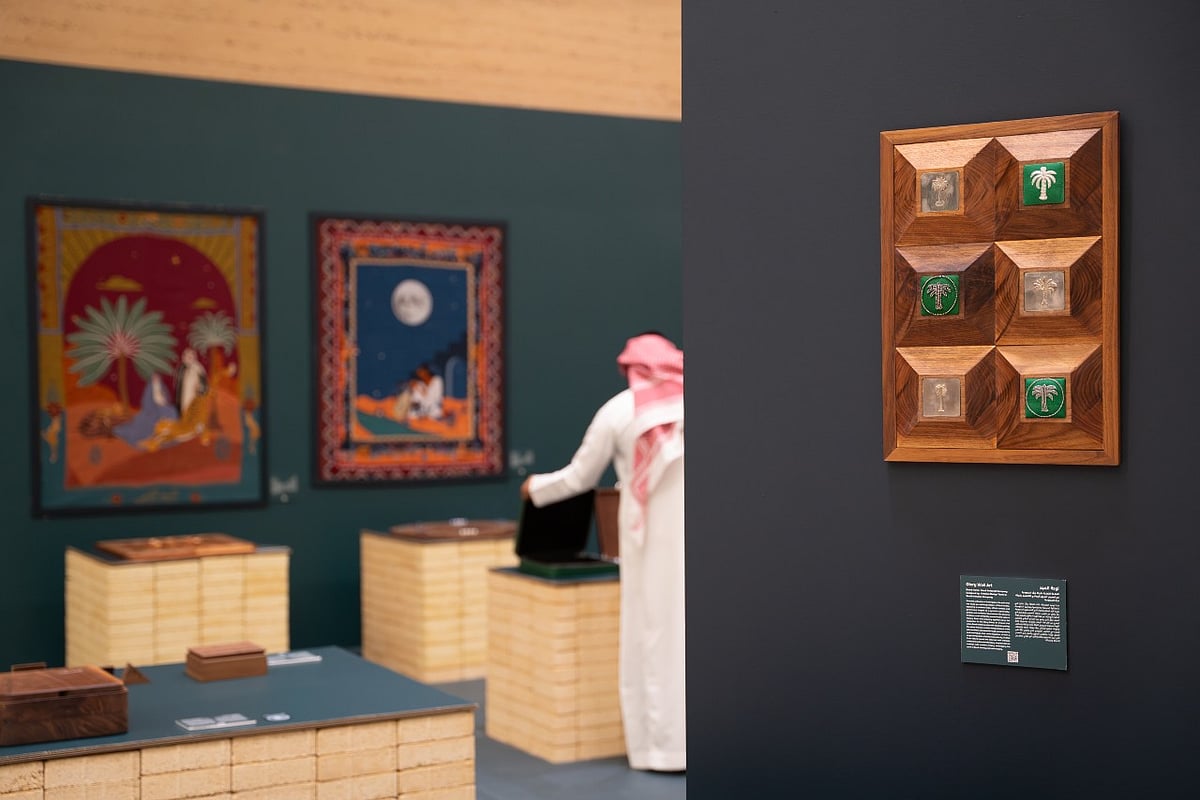'Design the Unspoken': Inside Tanween’s eighth edition
Sultan Albadran and Shahad Alwazani share their vision for Ithra's flagship design event

The King Abdulaziz Center for World Culture (Ithra) returns with the eighth edition of its most impactful annual event dedicated to design, Tanween, highlighting Ithra as a global design platform by showcasing works of design voices from all over the world. Under the theme “Design the Unspoken”, Tanween explores how design can respond to needs that are not yet expressed, featuring over eight international and hosted exhibitions.
Alongside its exhibitions, Ithra’s flagship design event, taking place from November 17 to 22, returns with a rich programme that includes the Tanween Majlis with more than 20 speakers, three “Day with an Expert” sessions, seven hands-on workshops, four walk-in activities, and the Tanween Design Market, as part of a wider program that also includes the Tanween Challenges and interactive experiences.
Tanween’s program brings together leading voices from across the global design community to explore new ideas, spark collaboration, and deliver real-world impact through workshops, talks, and design challenges, ensuring that cross-cultural exchange leads to concrete, measurable innovation in designers’ work. Tanween is designed as an active ecosystem, not simply a showcase where every program element is designed to create direct pathways from dialogue to practice. This happens in several ways, as Shahad Alwazani, Program Lead for Tanween, exclusively explains to The Kurator: “ We bring together international designers, studios, and platforms not only to present their work but also to co-create with talent from all over the world. This includes co-curated exhibitions, expert sessions, design sprints, and mentorship formats that place practitioners in shared environments where ideas move quickly from discussion to prototyping.”
During this year’s edition, a session brought together directors and founders of leading design weeks and events to discuss how celebrating design through such events can contribute to shaping the creative economy of the region, inspiring designers, clients, and audiences alike. “Our collaborations with international design weeks add another layer. By inviting leaders from Milan, Dubai, Doha, Amman, and Beirut to sit together at Tanween to collaborate and exchange, we create a bridge where designers understand how different contexts approach similar challenges. These exchanges lead to visible results, such as public installations, new partnerships, and design outcomes that continue beyond the event, fostering collaboration rather than competition,” Alwazani shares.
For Shahad Alwazani the theme of the eighth edition of Tanween, “Design the Unspoken”, reflects a global shift from designing solutions to designing understanding. It encourages designers to listen in new ways, observe with compassion, and create with a level of intention that today's world demands. “ It pushes designers to look beyond the visible and the stated to observe the quieter signals that shape how people live,” she says. “This makes the theme globally relevant because many of the challenges designers face today cannot be solved through traditional design briefs. They require sensitivity, research, cultural awareness, and a deeper understanding of users who may not have the tools or platforms to articulate their needs. Needs which relate to, for example, care, accessibility, inclusivity, wellbeing, and the human experience of rapidly changing environments,” Alwazani adds.
Tanween provides professionals, creatives and enthusiasts with meaningful opportunities to network and create; cementing Ithra’s position as the design destination in the MENA region. From a broader perspective, Sultan Albadran, Head of the Creativity and Innovation Unit at Ithra, shares exclusively with The Kurator: “At Ithra, we seek to nurture creativity as a lifelong skill, not only for designers but for anyone who engages with culture. Tanween is central to this mission. Each year, we curate a full ecosystem of learning, from technical workshops and studios to masterclasses, exhibitions and design sprints, that expose designers to new materials, methods and perspectives.”
“What makes Ithra unique is that designers don’t just attend an event, they enter a year-round community through the IdeaLab’s societies in design, architecture, immersive media and making. It becomes a safe space to test, experiment, fail and grow. This is how we expand creative horizons: by giving designers the tools, the guidance and the environment to stretch their imaginations and push boundaries,” he adds.
As Ithra continues to help shape the future of design in the Kingdom, Albadran reflects on the most significant creative change the Center hopes to inspire in the local design scene: “ It is a shift toward truly integrative design — where architects, product designers, technologists, artists and researchers work side-by-side. Today, no discipline works in isolation. The future of Saudi design depends on our ability to merge cultural insight, technology, material experimentation and global dialogue.”
To Sultan Albadran, Ithra’s role is ultimately to create the conditions for this evolution: platforms for exchange, access to expertise, opportunities to prototype and spaces where new ideas can emerge. “ If we succeed, the Saudi design scene will continue to mature into one that is innovative, collaborative and rooted in its own cultural identity, ” he shares.
Sign up for the Daily Briefing
Get the latest news and updates straight to your inbox
Network Links
GN StoreDownload our app
© Al Nisr Publishing LLC 2026. All rights reserved.